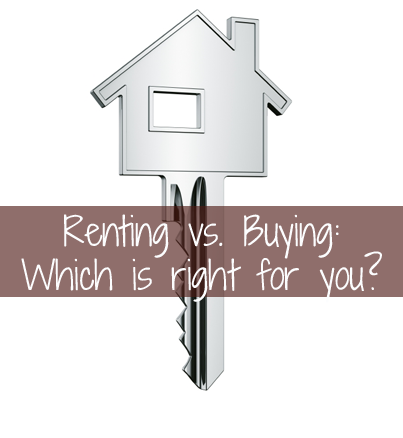
The decision to rent or buy depends on your family size, what your needs are and what your financial situation is like.
Spring will (hopefully) soon be upon us, meaning the start of “Home Season” isn’t far behind. One debate that comes up often at this time each year is which choice is better between renting a house/apartment or buying a home.
Northeast Security Bank wants anyone looking to change their address this spring to make the best decision possible. First, let’s take a look at some pros and cons of both renting and owning.
Renting
- Pros: generally less expensive; gives you the freedom to move around quickly; landlord often makes/pays for repairs; almost no monthly fees, taxes and expenses besides rent and utilities; less stressful.
- Cons: less stable- you’re at the mercy of your landlord; usually can’t make modifications or personalize the property; proximity to neighbors; have to deal with noise of neighbors next door, above or below you.
Buying
- Pros: gives you great stability – you’re not at the mercy of a landlord; you can modify, add to or personalize a home your own as much as you want; you can choose how much space is between you and your neighbors.
- Cons: generally more expensive; ties you down to one spot; must hire a professional to make repairs or do them yourself; more expenses to pay each month – mortgage payment, principal interest, property taxes, property insurance, homeowners association fees and maintenance; purchase and ownership can be very stressful.
So, which is best for you? The answer depends on a lot of independent factors, such as your age, financial situation, career situation, family, and more. However, there is a way to see whether homes in your area are fairly priced called the price-to-rent ratio (P/R ratio).
Find two similar houses, condos or apartments, one for sale and one for rent. Divide the sale price of one divided by the annual rent for the other. For example: divide a $200,000 house for sale by a house that rents for $1,000 a month ($12,000 annually). The result is a ratio of 16.7:1. If you find the ration to be higher than 20, that means ownership will cost more than renting. A “normal” ratio is between 10 and 14.
If ownership turns out to be the right move for you, Northeast Security Bank would be glad to help with your mortgage needs. Just get in touch with any of our offices for assistance. Good luck, and we hope to see you soon!
